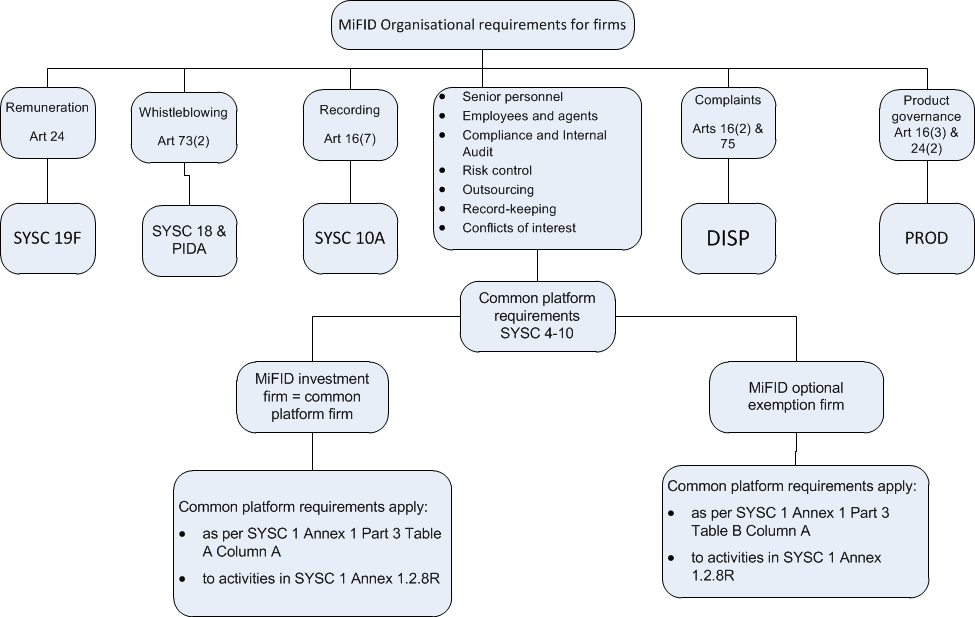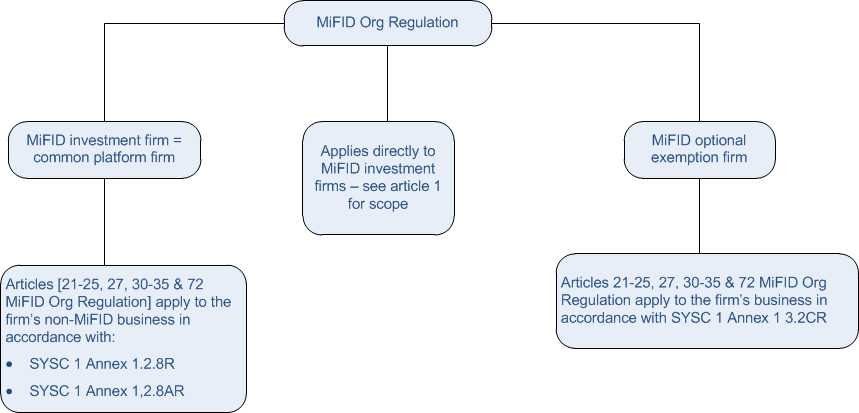M2G 2.1 Background
1This guide sets out an overview of the FCA’s approach to the transposition of the Markets in Financial Instruments Directive II (MiFID II) in the SYSC sourcebook. It explains how this fits within the context of the overall implementation of the legislation at EU and UK levels. The guide focuses on the regulatory regime for UK firms and is aimed at UK MiFID investment firms, that is investment firms authorised under MiFID and credit institutions carrying on MiFID business, and MiFID Optional exemption firms. The latter comprise advisers or arrangers who do not hold client money or assets and meet other conditions imposed under article 3 MiFID II, so as to be exempt from the Directive’s full application. See PERG 13 Q49, as updated by the Conduct, Perimeter Guidance and Miscellaneous Provisions (MiFID 2) Instrument 2017, FCA 2017/39.
1MiFID II (2014/65/EU) is addressed to all Member States and is binding as to the result to be achieved, albeit leaving the choice and method to national authorities. The UK has implemented the Directive via a combination of primary legislation, secondary legislation and regulatory rules.
1MiFID II contains revised senior management and systems and controls obligations relating to firms. With the exception of one aspect of the implementation of the whistleblowing obligations in MiFID II by way of primary legislation, transposition takes the form of regulatory rules. The relevant FCA rules are mainly contained in SYSC but PRA-authorised firms will also be subject to rules in the General Organisational Requirements in the PRA Rulebook.
1MiFID II also enables the European Commission to make secondary legislation which is of particular importance in the case of systems and controls. The Commission Delegated Regulation 2017/565 of 25 April 2016 (the MiFID Org Regulation (see http://eur-lex.europa.eu/legal-content/EN/TXT/?uri=CELEX:32017R0565)) contains detailed organisational requirements for those firms to which it applies, including authorised MiFID investment firms and credit institutions. These ‘Level 2’ obligations supplement the more general systems and controls obligations in MiFID II itself. As an EU regulation, the MiFID Org Regulation is binding in its entirety and directly applicable, and it becomes law in the UK without the need for domestic legislation.
1Many of the obligations in the MiFID Org Regulation feature in the MiFID implementing Directive (2006/73/EC) and so were implemented in SYSC by way of regulatory rules. The use of a regulation in MiFID II to impose many detailed requirements necessitates revisiting the corresponding rules in SYSC implementing MiFID and adapting the structure of SYSC.


